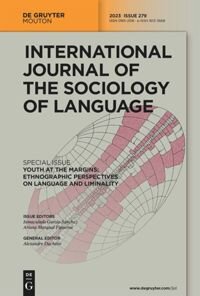This article examines how language, liminality, and social marginalization converge in the institutional lives of two displaced children in Angola. A displaced child is very likely to be placed into institutionalized care, which in Angola exists in the form of centros de acolhimento, residential centers that house minors affected by orphanhood, poverty, displacement, or abandonment.
Drawing on one year of ethnographic research in two residential centers, the article argues that despite being sites of care and protection, some children come to desire living on the street as a byproduct of persistent marginalization and forms of liminality in the institutions. Utilizing audiovisual recordings of everyday interactions among children and the center’s staff as data, the focus of the article is a set of communicative practices that routinely positioned certain children as liminal subjects who possessed the negative attributes with which liminality is most often associated: danger, pollution, and being an ambiguous nonentity.
As a result, those children occupied marginalized positions within the centers and their attempts at claiming their belonging were repeatedly undermined. The lived experience, talk, and perspectives of two children, a boy and a girl, are closely analyzed to illuminate the micro-processes involved in the discursive production of their liminality and social marginality. More broadly, the article elucidates the everyday forms of liminality that take place in the mundane, rather than in ritualized rites of passage, and questions the traditional notion of liminality as a temporary state.

